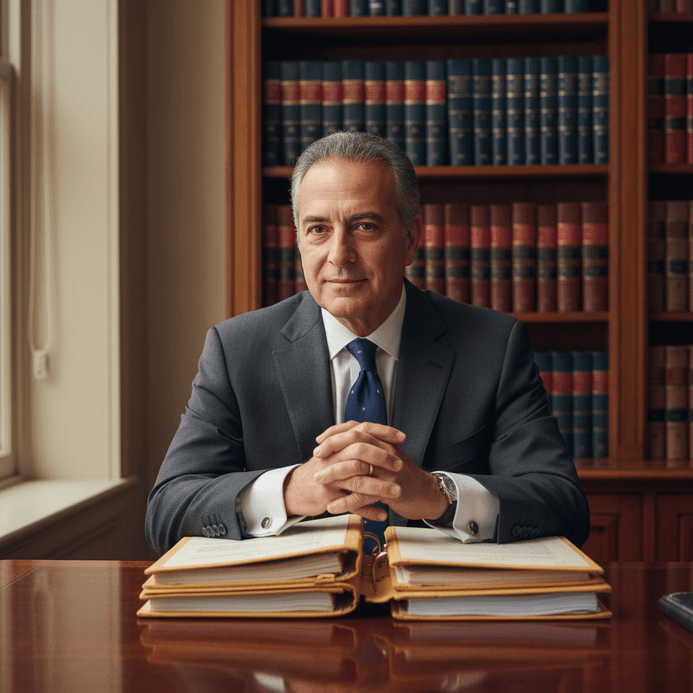Conducting witness interviews is a cornerstone of effective investigations. It requires thorough preparation, skilled techniques, and strict adherence to legal standards. Balancing empathy with professionalism ensures better cooperation and accuracy in witness accounts. Modern investigations demand structured methodologies while addressing challenges such as handling uncooperative witnesses and navigating complex legal or ethical considerations.
This guide provides clear, actionable insights into each stage of witness interviews, from preparation to post-interview documentation. Featuring expert recommendations and innovative tools, it empowers professionals to improve their investigative outcomes. LegalExperts.AI offers the resources to support professionals in achieving success while upholding compliance.
What Is a Witness Interview and Why Is It Important?
Witness interviews are a purposeful tool to gather critical facts and perspectives from individuals involved in an investigative process. Their value lies in ensuring accuracy, uncovering relevant details, and guiding essential decision-making.
What defines a witness interview?
A witness interview involves structured questioning aimed at obtaining factual and relevant information. Successful interviews prioritize clarity, trust, and thorough documentation of findings.
- Effective witness interviews are essential for collecting valid evidence.
- The information serves as a foundation for building legal or procedural outcomes, minimizing investigative ambiguity.
Why are witness interviews essential?
In internal or legal investigations, interviews directly influence the quality and integrity of findings.
- They capture firsthand recollections pivotal to understanding the sequence of events.
- Conducting ethical and strategic interviews strengthens organizational transparency and legal compliance.
Preparing for Effective Witness Interviews
Preparation determines the clarity and success of witness interviews. A meticulously planned strategy helps mitigate misinformation and eliminates procedural oversights during the process.
How do you plan for a witness interview?
Interview planning should encompass gathering relevant materials and selecting an optimal setting conducive to open communication.
- Collect background on the incident, related documents, and witness roles.
- Ensure a private, neutral location to maintain confidentiality and reduce distractions.
What legal considerations shape interview planning?
Legal norms are crucial for ensuring compliance and privilege during investigative interviews.
- Upjohn warnings: Specifically employed during corporate interviews, they clarify roles and confidentiality to safeguard organizational privilege.
- Addressing employee representation ensures fairness and adherence to legal rights while preventing potential claims of coercion or bias.
What are pre-interview logistics you must address?
Effective logistics focus on structuring questions and integrating tools for accuracy.
- Develop an outline of open-ended questions aimed at gathering comprehensive details.
- Utilize tools like transcription software or secure documentation platforms to streamline data collection.
Conducting the Witness Interview
During the interview process, combining skillful questioning, empathy, and attention to detail helps establish trust and gather detailed narratives.
What are the phases of a witness interview?
A well-structured interview follows three identifiable phases:
- Opening Phase: Begin by setting a welcoming tone, clarifying confidentiality, and explaining the interview purpose to build trust.
- Main Phase: Use open-ended questioning to explore witness accounts, ensuring clarity and depth in their responses.
- Closing Phase: Summarize discussions and clarify the next steps to manage expectations and reinforce professionalism.
What techniques ensure successful interviewing?
Adopting specialized techniques fosters cooperative, clear information sharing:
- Active listening bolsters witnesses’ confidence in communicating freely.
- Employing professional communication builds a sense of rapport while maintaining neutrality.
How do you handle uncooperative witnesses?
Uncooperative witnesses require strategic and empathetic approaches to elicit their participation.
- Unresponsiveness may stem from fear, distrust, or misunderstanding of the process.
- Psychologically informed techniques can help uncover resistance causes and redirect behavior toward collaboration.
According to a 2024 study by the Institute of Investigative Psychology, empathy and authority are key drivers in successfully reducing witness resistance.
Key aspects for managing difficult scenarios
Sensitive scenarios involving vulnerable or high-risk witnesses demand tailored care.
- Providing additional reassurances while respecting legal boundaries fosters productive dialogue.
- Exercising empathy ensures a supportive environment beneficial to transparency and honesty.
Post-Interview Considerations and Documentation
Documenting outcomes and evaluating results post-interview ensures accountability, integrity, and continual process improvements.
What does the post-interview process entail?
Carefully preserving outcomes ensures alignment with investigative goals and procedural accuracy.
- Record findings via secure transcription platforms to maintain evidentiary value.
- Implement data security protocols safeguarding confidential segments of stored interviews.
How do you evaluate interview effectiveness?
Evaluation criteria assist in identifying practices for refinement and training opportunities for improvement.
- Engagement levels, accuracy of recollections, and adherence to objectives often signal interview success.
- Comparing evaluation benchmarks across multiple interviews using performance tracking creates measurable outcomes.
What follow-up actions are necessary?
Consistent follow-up ensures comprehensive investigation conclusions and witness satisfaction.
- Collect feedback from witnesses regarding the clarity and fairness of interview procedures.
- Employ modern tools like Relativity for managing notes or CaseMap for correlating data to streamline comprehensive investigations.
Legal and Ethical Considerations
Interviewers must practice rigorous adherence to legal and ethical standards to avoid misconduct while protecting participant rights.
What are the key legal principles in witness interviews?
Legal privilege is central to ensuring that interviews respect both statutory guidance and common law precedents.
- Privilege: Communications protected under privilege remain admissible only in permitted conditions.
- Informed consent during recordings or voluntary input prevents claims of procedural violations.
How do ethics influence investigative interviewing?
Ethical procedures reflect professional integrity and reduce risks associated with flawed compliance.
- Avoid coercive or leading questions to ensure voluntarism in responses.
- Maintain impartial data analysis by recording interviews without personal interjections.
How does globalization impact legal considerations?
International cases often complicate witness interviews due to jurisdictional conflicts or privacy law differences.
- Adhere to data protection standards under GDPR or equivalent frameworks for cross-border data exchanges.
- Comply with local labor laws ensuring access to fair representation based on witness jurisdictions.
Practical Tips for Successful Witness Interviews
Understanding common pitfalls and strategies mitigates confusion while ensuring streamlined investigation interviews.
What are practical tips for conducting smooth interviews?
Implement a practical blend of communication, planning, and sensitivity:
- Establish credibility by being transparent about the interview purpose.
- Use flexible yet consistent questioning strategies.
- Allow uninterrupted narratives while documenting efficiently.
What mistakes should professionals avoid?
Common errors can compromise the reliability of interviews and findings.
- Do not rush into interviews without researching witness contexts.
- Avoid interruptions that may derail open assessments or add bias.
Modern Tools and Technology in Witness Interviewing
Integrating innovative tools simplifies workflows and adds layers of reliability to investigation interviews.
What technology supports witness interviewing?
Modern technology advances efficiency in documentation and assessment.
- AI-powered transcription tools streamline notes, preserving details accurately.
- Data encryption standards ensure recorded interviews are stored securely.
How can AI improve witness interview processes?
Artificial intelligence introduces analysis tools that enhance interview results and compliance management.
- Machine learning algorithms detect inconsistencies or contradictions in witness responses.
- Predictive systems improve question relevance by matching strategies to behavioral patterns.
According to a 2023 study by the Center for Investigative Technology, AI-powered analytics boosted interview reliability by 40% in internal investigations.




